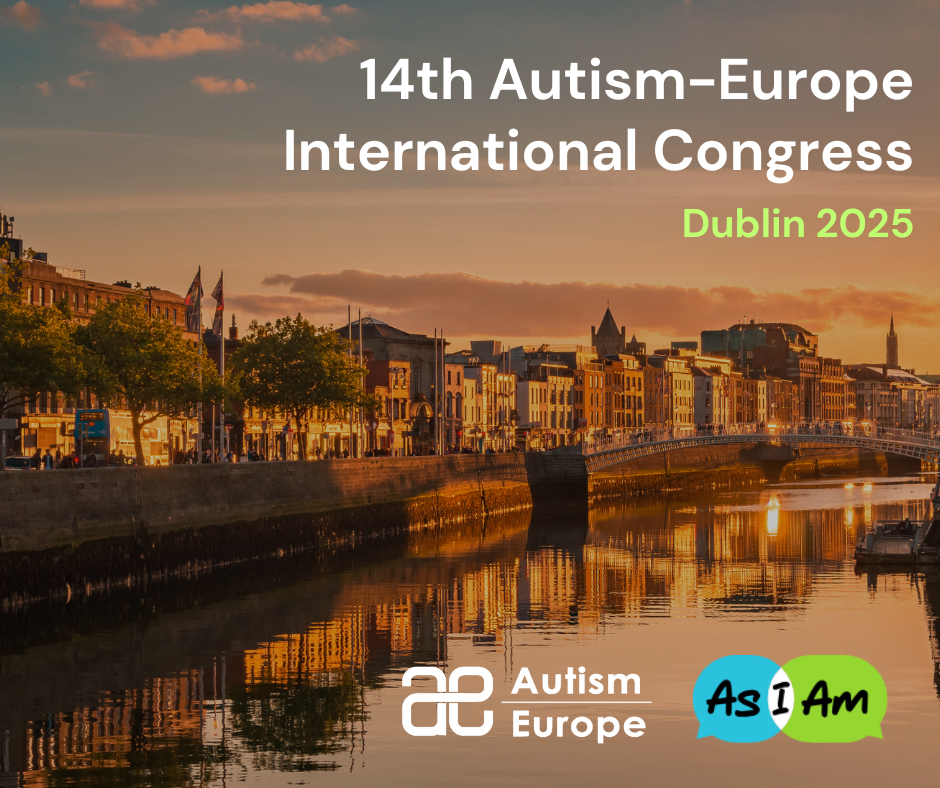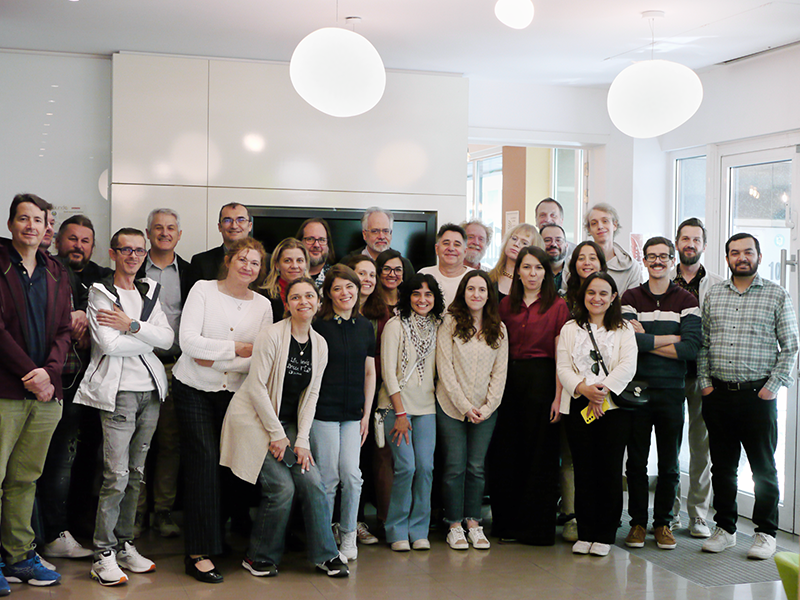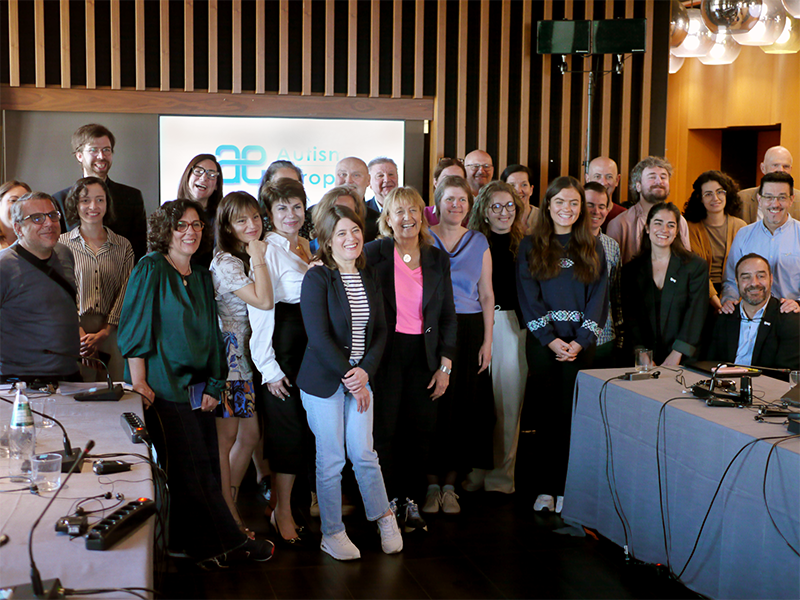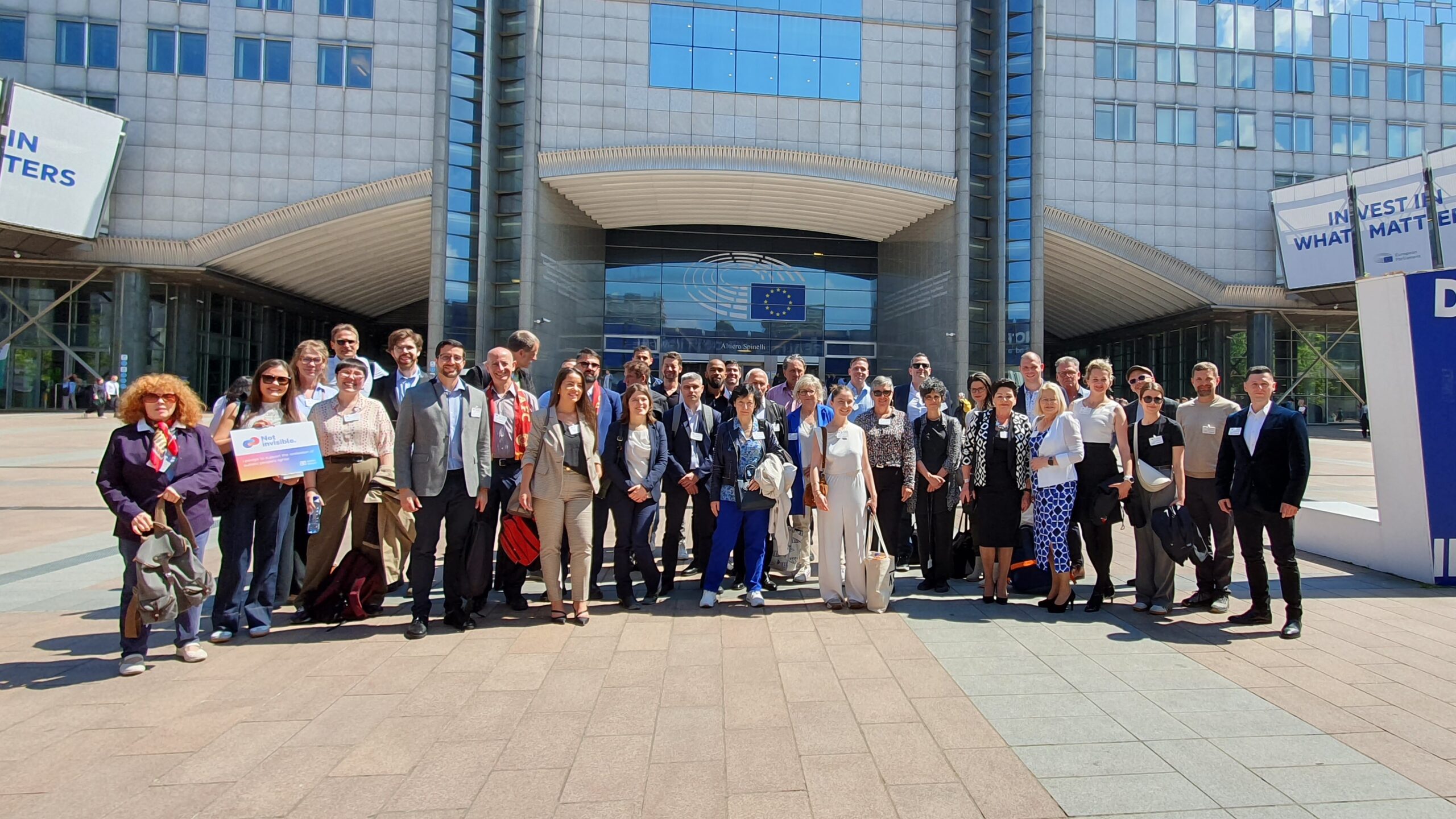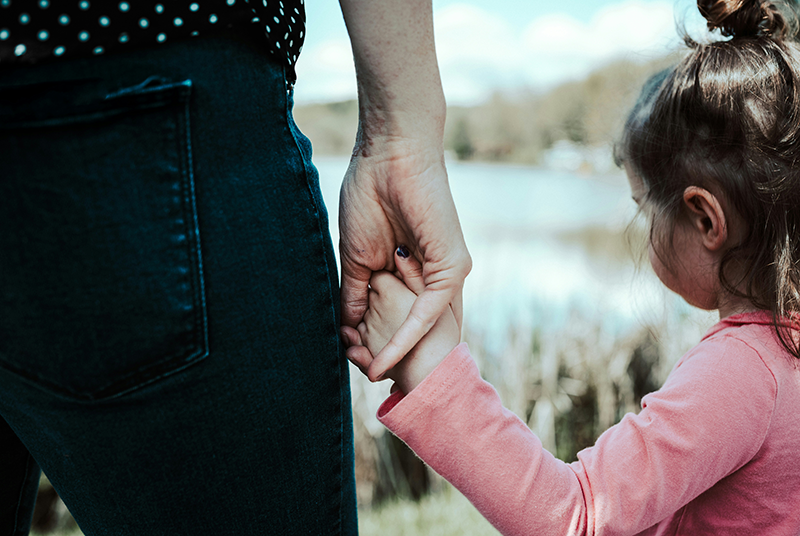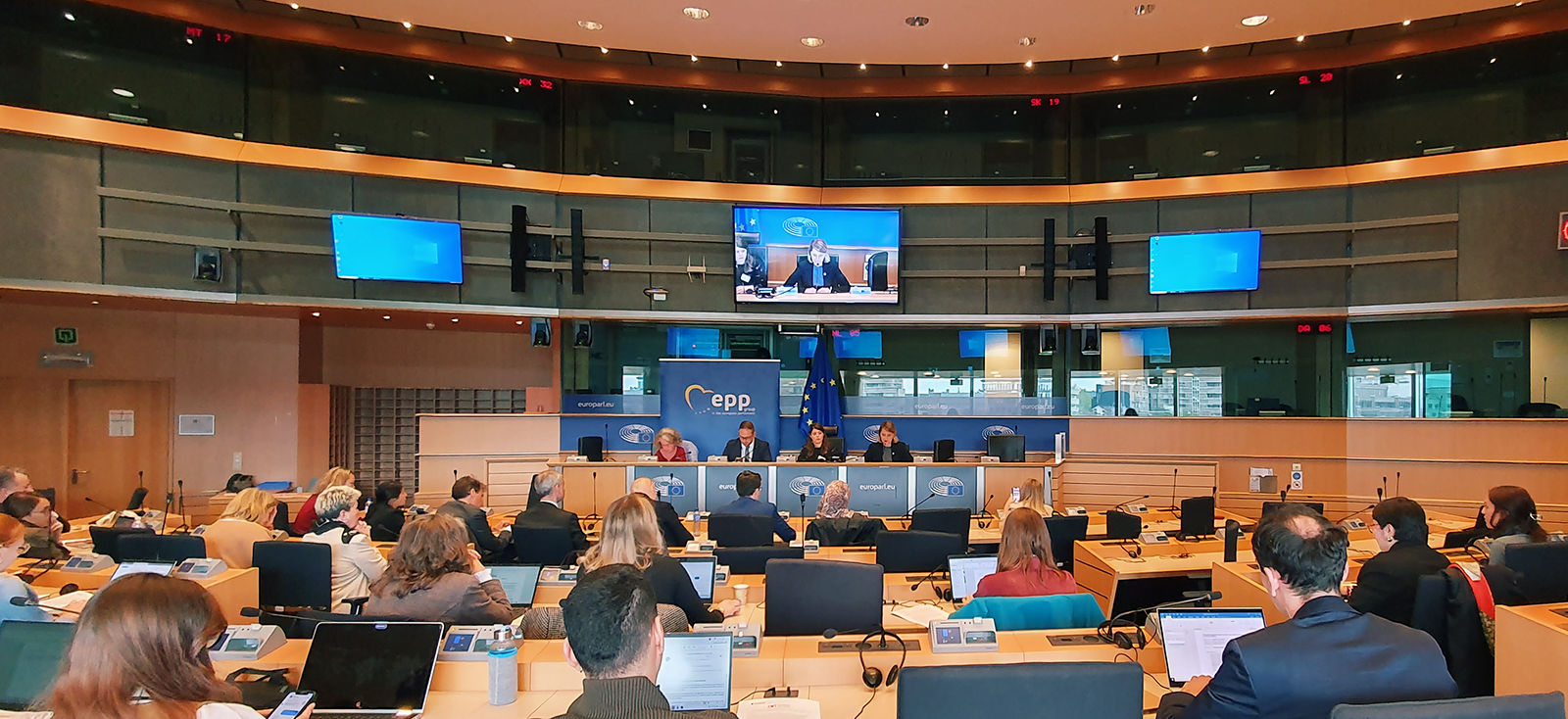
A high-level conference on autism, held at the European Parliament on 23 April 2025, produced commitments from multiple members of the parliament to push for an EU-wide autism strategy, and revealed new research results from the world’s largest research project on autism.
The conference, titled “Towards a common approach for autism in Europe”, was organized by Autism-Europe in partnership with the AIMS-2-TRIALS project, and hosted under the auspices of the Disability Intergroup of the European Parliament.
AIMS-2-TRIALS includes 48 partners across 14 countries from academia, industry, charities and the autistic community. Among other achievements, the project has established the largest research platform of longitudinal studies on autism from infancy to adulthood.
The goal of the conference was to initiate dialogue between researchers, representatives of the autism community, and policymakers on the next steps for investment in research, support and infrastructure related to autism. It rests in part on the commitment of the European Commission to work towards a common approach to autism at the EU level, as expressed in a mission letter from European Commission President Ursula von der Leyen to Commissioner for Health, Olivér Várhely, in September 2024.
The commissioner appeared in a video address to welcome the attendees. He endorsed the conference’s goals. “Autism requires comprehensive and enduring approaches,” Várhely said in the video. “We are dedicated to improving [autistic people’s] and their families’ lives in the European Union. Everyone should be included no matter where they live, no matter their condition or disability.”
A European strategy on autism
Autism-Europe has long demanded a strategic and holistic approach – developed in full cooperation with the autism community – at the European level to realise the rights of autistic people.
The three members of the European Parliament seated at the podium honoured that demand: MEP Rosa Estaras (EPP), a Spanish bureau member of the Disability Intergroup, concluded her opening remarks with an announcement. “In the next days, I will propose the creation of a European strategy on autism, with the aim of ensuring that people with autism have access to the same opportunities and rights in European countries, promoting their inclusion and full participation in society,” she said.
MEP Alex Agius Saliba (S&D), Maltese co-chair of the Disability Intergroup, called for “establishing a binding European autism strategy aligned with the CRPD.” This refers to the United Nations Committee on the Rights of Persons with Disabilities. The CRPD Committee issued recommendations earlier this year calling on the EU to adopt concrete actions to address the needs of autistic individuals in the second phase of the European Strategy for the Rights of Persons with Disabilities, among other findings.
MEP Katrin Langensiepen (Greens/EFA), German co-chair of the Disability Intergroup, affirmed that she and her colleagues will push for such actions. “We are working on the disability strategy,” Langensiepen said, with a nod to her colleagues on the podium. “We will push the [European] Commission for something concrete and not only for guidelines.”
New research results
Harald Neerland, president of Autism-Europe, spoke of the achievements of the AIMS-2-TRIALS project, focusing on the improved involvement of the autism community in research. It paves the way for systematic “ethical, reciprocal partnership”, and priorities of autistic people should shape the research agenda, he said.
Prof. Eva Loth, who researches cognitive neuroscience at King’s College London and is a deputy lead of AIMS-2-TRIALS, reminded the audience that autism is tremendously variable, in part because many autistic people have co-occurring mental-health or physical conditions. Healthcare, social and educational systems must be able to support this wide range of conditions. That is the overarching idea behind AIMS-2-TRIALS: to better tailor treatments and/or support to individual needs and profiles.
The project created the largest research platform of longitudinal studies from infancy to adulthood, Loth said. The researchers characterize each volunteer’s clinical features, cognitive profiles, brain anatomy and function, immune markers, family psychiatric history, environmental factors, and genomics, she said.
Among their findings:
- There is “enormous overlap” between autism and other neurodevelopmental conditions, both at a clinical and a biological level. This means that people should be assessed for multiple conditions at once, rather than testing only for autism, for example.
- There is no single part of the brain or a cognitive feature or genetic marker that characterizes all autistic people. This means researchers must move away from searching for deficits in specific parts of a person, Loth said, and move to a more holistic approach that tracks how the brain, the body and the social environment interact.
Loth thanked the European Union for funding the project to the tune of €60 million over the past 12 years, which is unprecedented in the history of autism research in Europe. However, she pointed out, the Commission spent about €900 million on heart-disease research and €4 billion on cancer research in the same period. The EU funds spent on autism research should not be a single investment, Loth said. “We must now build on the European infrastructure and expertise we created.”
Dr Siti Ikhsan, a researcher from the Autism Research Centre, University of Cambridge, and Pierre Violland, a professional peer practitioner and autism representative, presented the results of the ‘ACCESS-EU’ survey, which asked more than 2,000 autistic participants in the EU and the UK about their access to various services. One finding: most participants waited for up to six months for most services including therapy, educational services and housing-related services, less than one month for emergency medical services and mental health crisis services, and more than 12 months for autism diagnostic services. These and other findings showed the urgent need for policy changes to improve access to such services across Europe, Ikhsan said.
The two researchers also shared the results of the ‘10 Points for Change’ study. The areas autistic people and parents/carers of autistic people most wanted to change were education, employment, public awareness and understanding of autism, government funding for autism-specific services and mental healthcare.
Prof. Celso Arango, head of the child and adolescent psychiatry service at Hospital General Universitario Gregorio Marañón in Madrid, Spain, along with Violland, presented results from a study on access to services to diagnose autism and epilepsy. The results varied greatly between EU member states. Autistic people in Spain and in the UK had to wait much longer for such services than people in Italy, for example. Other factors, such as whether a paediatrician or a neurologist were involved in a child’s autism screening, also differed from country to country. In Italy, 100% of autistic children with epilepsy received anti-epileptic drugs, but only one-third of such children in the UK did.
Violland said more awareness of the co-occurrence of epilepsy and autism was urgently needed both among medical practitioners and in families. He also stressed the need for more equal access to diagnostic and other services for lower-income families. Existing inequalities may result in delayed diagnoses of autism in children, which can have negative effects.
Prof. Emily Jones, from the University of London, also underlined the importance of early detection, and explained that the project research points to sensory and sleep differences in infancy as early indicators of autism. She also highlighted the urgency of more research on helping autistic people with high support needs, a population often underrepresented in research, with a higher-than-average mortality rate.
Feedback from activists
This last point was echoed by audience members during a Q&A session. Salima Slimani, a Belgian advocate for the rights of autistic people and their families, delivered a passionate plea for more consideration in policymaking for the families of autistic people with high support needs. She spoke of the high levels of discrimination her autistic family member has experienced. Her family did not have full freedom of movement due to lack of services across Europe and because her family member’s autism diagnosis was not recognized in all member states, she said. She called on policymakers to find a “common ground” in Europe.
Adam Harris, the CEO of AsIAm, the largest autism organisation in Ireland, reminded policymakers of the importance of implementing existing policies and strategies, and asked them to focus on rights-based strategies. Autistic people need a clear and dedicated autism strategy, he said, not one mixed with other policies on cancer and other health topics.
Inmaculada Placencia Porrero, senior expert in disability and inclusion at Directorate-General for Justice and Consumers of the European Commission, closed the conference by summarizing that there is inconsistency in the access of services across Europe. She also urged audience members to contact their national parliamentarians and to respond to public consultations by the commission.
